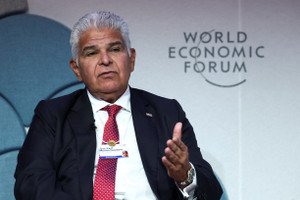FSS launches Paynalytix-As-a-Service to maximize business performance
Published by Gbaf News
Posted on April 18, 2018
5 min readLast updated: January 21, 2026

Published by Gbaf News
Posted on April 18, 2018
5 min readLast updated: January 21, 2026

FSS, a Payments and Fintech leader, announced the launch of Paynalytix-As-a-Service at Seamless Middle East, the region’s premier industry event in Dubai. FSS Paynalytix-As-a Service brings multi-source, multi-format data together in the cloud and helps banks harness the value of their data for improved business outcomes.
With the growth of digital payments, banks have a plethora of data available from an increasing number of digital payment sources including issuance and acquiring systems. FSS Paynalytix-As-a-Service leverages Paynalytix, an advanced big-data platform to help banks efficiently model performance along multiple business and operational dimensions. The solution synthesizes data from the Switch and multiple payment applications including Mobile Banking, Internet Banking, Card Management Systems, ATM Monitoring Systems, Payment Reconciliation Systems, Payment Gateways and POS to generate actionable insights for maximizing revenues as well as driving operational efficiencies.
Intuitive data visualization dashboards provide on-demand access to insights to a range of authorized end users, making it easy for various business units within financial institutions to analyze operational performance, fraudulent transactions, channel profitability and the end-customer experience.
Speaking on the launch, Suresh Rajagopalan, President Software Products, stated, “In an age of payments disruption, analytics is at the core of innovation and differentiation. FSS Paynalytix-As-a-Service helps banks achieve success by bringing a culture of data-driven decisioning at scale. By exploiting vast underutilized repositories of transaction data, we can help banks carve new business models and services and transform their go-to- market approach.”
FSS Paynalytix-As-a-Service offers pre-built applications to help banks accelerate time-to-value. These include:
FSS’ Paynalytix-As-a-Service platform is available on an outcome-based ‘pay-per-insight’ cloud delivery model. Banks can use pre-built applications or leverage FSS expertise in Payments and Big Data to develop new applications over the platform.
FSS, a Payments and Fintech leader, announced the launch of Paynalytix-As-a-Service at Seamless Middle East, the region’s premier industry event in Dubai. FSS Paynalytix-As-a Service brings multi-source, multi-format data together in the cloud and helps banks harness the value of their data for improved business outcomes.
With the growth of digital payments, banks have a plethora of data available from an increasing number of digital payment sources including issuance and acquiring systems. FSS Paynalytix-As-a-Service leverages Paynalytix, an advanced big-data platform to help banks efficiently model performance along multiple business and operational dimensions. The solution synthesizes data from the Switch and multiple payment applications including Mobile Banking, Internet Banking, Card Management Systems, ATM Monitoring Systems, Payment Reconciliation Systems, Payment Gateways and POS to generate actionable insights for maximizing revenues as well as driving operational efficiencies.
Intuitive data visualization dashboards provide on-demand access to insights to a range of authorized end users, making it easy for various business units within financial institutions to analyze operational performance, fraudulent transactions, channel profitability and the end-customer experience.
Speaking on the launch, Suresh Rajagopalan, President Software Products, stated, “In an age of payments disruption, analytics is at the core of innovation and differentiation. FSS Paynalytix-As-a-Service helps banks achieve success by bringing a culture of data-driven decisioning at scale. By exploiting vast underutilized repositories of transaction data, we can help banks carve new business models and services and transform their go-to- market approach.”
FSS Paynalytix-As-a-Service offers pre-built applications to help banks accelerate time-to-value. These include:
FSS’ Paynalytix-As-a-Service platform is available on an outcome-based ‘pay-per-insight’ cloud delivery model. Banks can use pre-built applications or leverage FSS expertise in Payments and Big Data to develop new applications over the platform.
Explore more articles in the Top Stories category











